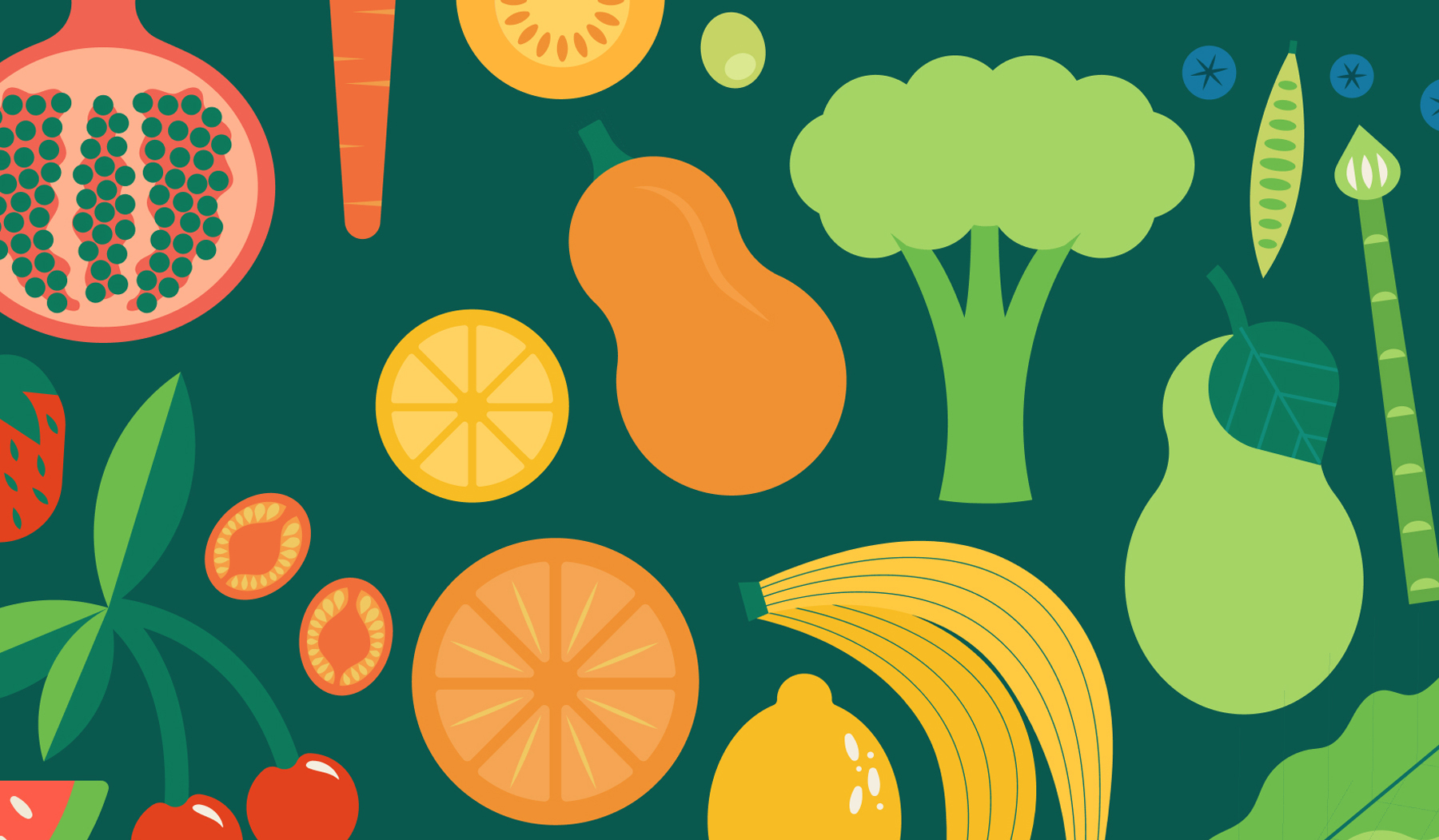- Home
- Resources
- Health Guides
- Guide
Nutrition During Cancer
There is so much to learn after a cancer diagnosis and navigating treatment can be overwhelming. Here you will find nutrition tips from institutions on the cutting-edge of research, to provide you with resources to share with your care team during your treatment journey.


Getting enough calories
Getting proper nutrition keeps your body fueled. When it comes to nutrition during cancer treatment, the most important thing is to make sure you get the calories and protein you need to keep your body strong throughout your treatment.1,2 Maintaining weight during treatment is critical and eating well can improve the effectiveness of your treatments, which can lead to better outcomes.
The Rogel Cancer Center notes that too much weight loss can slow down/delay treatment. But side effects of treatment, including loss of appetite, can make it challenging to get the calories your body needs. This is particularly true for patients with oral, throat, or other types of head and neck cancers. For these patients, the cancer itself, as well as treatment, changes the ability and desire to eat.
Chemoradiation treatment often has side effects that impact appetite and how foods taste. It’s also important to understand that cancer changes the way the body uses food for energy. If you think of food as the fuel your body needs to function, the importance of eating becomes clear.3
Lack of appetite can make getting enough calories difficult. During treatment, what tastes good to you today may not taste good tomorrow. On some days, you may feel like you just can’t eat anything at all. The Mayo Clinic has recommendations on how to get the calories your body needs; see below.4
How to get the calories you need

Eat small amounts frequently.
Try eating small amounts throughout the day when you get the urge to eat. You may find it easier to eat small amounts several times each day rather than at mealtimes. If you never seem to feel hungry, it’s often helpful to eat according to a schedule rather than to rely on appetite.
Eat more when you’re hungry.
Take advantage of the times when you feel your best to eat more. Many people have their best appetite in the morning, when they’re rested.
Limit fluids during meals.
Liquids can fill you up and limit your intake of higher-calorie foods. It may help to drink most of your liquids at least a half-hour before or after meals.
Create a pleasant mealtime atmosphere.
For example, use soft music, candles, or nice place settings. Select foods with a variety of colors and textures to make your meals more appealing, and avoid smells that make you sick.
Getting enough protein
Every person’s individual protein needs are different. Your needs depend on factors including age, gender, weight, activity, and even type of cancer or treatment.
Chances are, getting enough protein will be a high priority during your cancer journey. You may have heard about a condition called hypermetabolism that may be related to your cancer diagnosis or treatment. Hypermetabolism affects how the body uses food, and may require you to increase your calorie or protein intake.5
If increasing your protein intake sounds difficult, keep in mind that there are many foods that contain protein. In addition to meat and dairy products, peas, almonds, oats, beans, legumes, and even vegetables like broccoli and kale contain protein. This is important because some people on chemotherapy may not tolerate some foods high in protein or may not find them appealing.6 Work with your registered dietitian to make a plan and choose the foods that you like!
Plant-based foods and phytonutrients
Whether you already eat a plant-based diet, or you want to switch to plant-based eating during treatment, you should work with a registered dietitian to ensure that your eating plan meets your individual needs.
Nutrient-dense plants provide a variety of nutrients to support health and recovery. For people in cancer treatment, fruits, vegetables, whole grains, lean proteins, healthy fats, and hydration support positive treatment outcomes and side effect management.
The reason plant-based foods are so powerful is in large part due to the phytonutrients found in plants. Phytonutrients (also known as phytochemicals) are chemical compounds that give plants their bright color and are packed with antioxidants.
Phytochemicals and the compounds that form from them seem to act in a variety of ways to protect health. Some can increase cancer cells’ tendency to self-destruct; others may stop carcinogens before they have a chance to begin the process of cancer development. They may also block the development of new blood vessels tumors need. Some fight inflammation.7


Liquid nutrition
Despite your best efforts, you may still struggle with malnutrition – but you won’t be alone. Up to 85% of cancer patients suffer from malnutrition at some point during their cancer treatment. Malnutrition occurs when your body doesn’t get or can’t absorb the nutrients it needs – patients with malnutrition could notice symptoms like a decrease in activity or energy and losing more than 1 to 2 pounds a week8.
So, what types of foods should a patient with malnutrition eat? Whatever they can! Eat whatever sounds good to you, but if you can, look for foods that are not only high in calories but also high in nutrients (vitamins & minerals). Liquid nutrition in the form of smoothies and protein drinks can be another good way to get your calories and nutrients, if you have trouble eating enough solid food.
Your registered dietitian can help you determine if supplements like Kate Farms can help you get the nutrition you need.
More resources
Articles, profile stories and more to support you on your health journey
Get Kate Farms by prescription.
We can help you get Kate Farms covered by your insurance.
Organic, plant-based superior nutrition
Great tasting shakes & formulas made with carefully chosen ingredients, including organic pea protein and functional fats for better digestion. Our shakes, formulas, and blended meals are made without the top 9 common allergens – including milk, eggs, fish, shellfish, tree nuts, peanuts, wheat, soybeans, or sesame. No artificial flavors.
Shop All
Free of common allergens
Certified goodness
Backed by science
Nationally available and accessible
Customer Care Center
Sources
1 Memorial Sloan Kettering Cancer Center – Eating Well During Your Cancer Treatment
2 (Bruera, 1997; Shike, 1996). https://www.ncbi.nlm.nih.gov/pmc/articles/PMC5679054/
3 Rogel Cancer Center, Michigan Medicine – How to Maintain Weight During Cancer Treatment
4 Mayo Clinic – No appetite? How to get nutrition during cancer treatment
5 Stanford Health Care – High Protein Foods as Part of Your Cancer Diet
6 University of Rochester Medical Center – Nutrition and Cancer: High-Protein Foods
7 American Institute for Cancer Research – Difference Between Antioxidants and Phytochemicals?
8 MD Anderson Cancer Center – Cancer treatment side effect: Malnutrition





